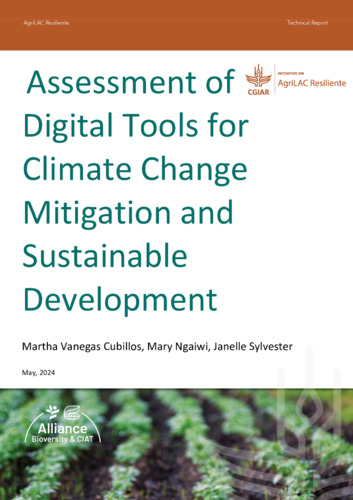Assessment of digital tools for climate change mitigation and sustainable development
Addressing climate change effectively requires innovative approaches across various sectors, including agriculture. Digital tools have become vital in this effort, offering researchers and agricultural extensionists the means to enhance sustainable practices and integrate climate change mitigation with Sustainable Development Goals (SDGs). This report assesses research-based digital tools, emphasizing their capacity to support climate change mitigation while aligning with SDGs. While previous reviews have focused on farmer-centered tools, this report fills the gap by evaluating tools specifically designed for researchers and extension advisors, who are pivotal in advancing sustainable agricultural practices.
Digital tools are indispensable for advancing scientific research and supporting agricultural extension efforts in climate change mitigation. These tools address the complex and multidimensional nature of climate change and SDGs by providing sophisticated data processing and analysis capabilities. Despite the proliferation of digital tools, there remains a gap in understanding their landscape and applications. This report seeks to bridge this gap by cataloging available tools, assessing their functions, and evaluating their contributions to selected SDGs. By enhancing the technical support and performance assessments available to researchers and extension advisors, digital tools can improve farm management practices and accelerate the adoption of low-emission practices.
Our findings indicate that digital tools significantly support climate change mitigation through informed decision-making, monitoring, and assessing mitigation strategies. Fourteen of the identified tools contribute to multiple SDGs beyond climate change mitigation, such as AURORA, which offer flexibility in monitoring progress towards various restoration goals and benefits and ScalA-PB, which provides insights on project planning to ensure other SDGs are taking into account in the project design. However, most tools address these goals indirectly, and gender and social inclusion aspects are underrepresented. To maximize their effectiveness, we recommend integrating these aspects explicitly into tool designs and providing user guidance and training that emphasize their importance. Combining different tools can offer a holistic understanding of climate change mitigation and sustainable development, significantly enhancing the impact of research and extension activities.

